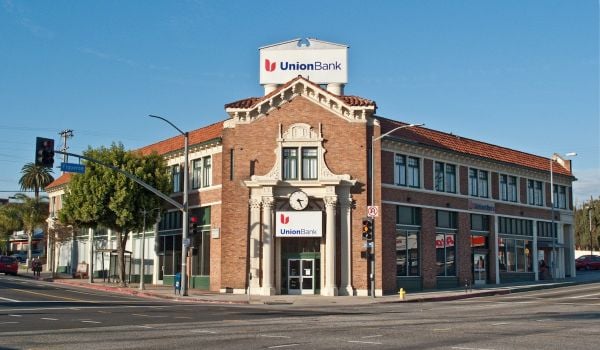Quickly after Mayor Bill Peduto took office in January 2014, he established an entirely new Department of Innovation and Performance. Moving fast is kind of his thing. Maybe it’s just another sign of the new fast-moving Pittsburgh, embodied even by its historically grind-it-out Pittsburgh Steelers suddenly being symbolized by a high-flying wide receiver.
Debra Lam is no Antonio Brown, but as the city’s chief innovation and performance officer, she moves just as fast as a pro football player. Her department took just over a year to put together the city’s Roadmap for Inclusive Innovation, on a shoestring budget, all the while bringing together, under her department’s umbrella, the city’s traditional IT department; city cable, print shop, website and social media; data and performance analytics; office of sustainability; and cybersecurity office.
“Innovation was already happening in Pittsburgh,” says Lam, a Pittsburgh native. “It just wasn’t being celebrated at the city leadership level.”
One of the reasons why is that the prevailing definition of innovation in Pittsburgh when Lam first started was still largely tied to high-tech and academic communities. It’s not hard to see why, given world-class universities in town like Carnegie Mellon and the University of Pittsburgh.
Lam, who isn’t the biggest fan of definitions (“You end up spending a lot of time defining and not enough time doing,” she says), worked with her team to make an extensive effort to broaden the definition of who is in Pittsburgh’s innovation space.
“We did a series of roundtables where we facilitated discussions between people that normally might not have gotten together to talk about innovation,” Lam says, “including how can we make it more inclusive.”
Topics for roundtables included the “maker movement,” clean technology, co-working and accelerator spaces, startups and entrepreneurs, venture capital and bioenergy. Stakeholders in each area gave presentations and provided insight into how their sector of the innovation community could become more inclusive and partner with the public sector. More than 150 people attended the roundtables in person, a majority of them from nonprofits or other non-government, non-university groups. All told, representatives of 84 organizations participated.
In addition to roundtables, which were broadcasted on public access television, Lam and her team engaged the community through online channels. The team connected with 685 people or organizations through social media. More than 20 roundtable videos posted on YouTube received over 1,000 cumulative views.
“Not to say that we touched everything and everyone,” Lam admits.
The resulting roadmap outlines six broad areas of innovation. Out of more than 100 actions accounted for in the document, 44 percent are projects already underway. Lam’s department is planning for how to track progress on listed projects as well as exploring how to structure a more formal process for how the community can continue to add projects to the roadmap.
“The roadmap is a living document,” Lam says. “It’s an iterative process.”
For now, the roadmap’s website includes a feedback form where Lam encourages people and organizations to make suggestion. They’re also taking suggestions via Twitter.
Ongoing community engagement around innovation is also a hallmark of the Living Cities/Bloomberg Philanthropies i-Teams initiative, in which cohorts of innovation team members from cities around the country receive financial, networking and professional support to implement the City Hall Innovation Team Playbook. It’s based largely on former NYC Mayor Mike Bloomberg’s experience with data-driven civic innovation while in office. Timing essentially precluded Lam’s office from participating so far, but they’ve been in talks about how to connect in some way.
In the meantime, local partners have been critical.
“This is very homegrown,” Lam says. The Urban Redevelopment Authority (URA), Pittsburgh’s economic development agency, remains a crucial partner.
“Call it inclusive innovation, call it what you want, but at the end of the day, we want to improve the quality of life for all citizens,” Lam says. “The reality is you can’t really do that without thinking about the economic development component, and the URA helps ground the whole process in that.”
In addition to projects already implemented in Pittsburgh, the roadmap refers and links to best practices in each of the six focus areas from other cities or states. Lam’s team looked at more than 80 best practices from more than 50 cities, states or countries. San Francisco appears six times, New York and Philly five, Boston four, Cleveland three. Toronto, Barcelona and São Paulo got one nod apiece.
Many of the lowest-tech innovations could be the envy of much larger cities that like to think of themselves as hotbeds of small business and inclusive entrepreneurship.
While making some progress, New York City’s small business and startup licensing and permit processes remain rather nebulous. Meanwhile, Lam and her team recently held their third small business resource fair, during which entrepreneurs can find and engage, in once place, representatives from all relevant departments covering small business and startup concerns.
“We’re still in the early stages,” Lam says.
Like every great wide receiver — just needs a few catches to get some great yardage for the team.
The Equity Factor is made possible with the support of the Surdna Foundation.

Oscar is Next City's senior economic justice correspondent. He previously served as Next City’s editor from 2018-2019, and was a Next City Equitable Cities Fellow from 2015-2016. Since 2011, Oscar has covered community development finance, community banking, impact investing, economic development, housing and more for media outlets such as Shelterforce, B Magazine, Impact Alpha and Fast Company.
Follow Oscar .(JavaScript must be enabled to view this email address)

















